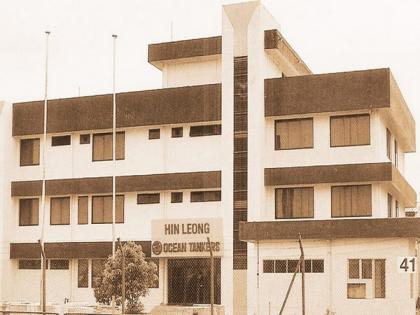Singapore's legandary oil trader in debt trap amid COVID-led oil price plunge
By ANI | Published: April 27, 2020 01:34 PM2020-04-27T13:34:33+5:302020-04-27T14:05:39+5:30
Hin Leong Trading, once a colossus in Singapore's oil trading community, has filed for bankruptcy protection after the collapse of global oil prices due to COVID-19 outbreak.

Singapore's legandary oil trader in debt trap amid COVID-led oil price plunge
Hin Leong Trading, once a colossus in Singapore's oil trading community, has filed for bankruptcy protection after the collapse of global oil prices due to COVID-19 outbreak.
Among the international banks affected, HSBC has the largest exposure at USD 600 million while ABN Amro is owed USD 300 million and Standard Chartered USD 240 million.
On April 17, the trading firm filed an application to the Singapore High Court for a debt moratorium (bankruptcy protection) as it seeks to restructure debts of almost USD 4 billion.
The plight of Hin Leong, founded in 1963 by self-made Chinese tycoon Lim Oon Kuin, has rattled the commodity trading industry as its likely collapse may have far-reaching implications.
There is speculation that undisclosed industry losses among commodity traders and compes could run into several billions of dollars and could trigger more defaults and bankruptcies especially among the smaller traders with poor hedging and financial operations.
Singapore police have begun investigating Hin Leong as startling news emerged that it has hidden nearly USD 800 million in losses from speculative trades in oil futures over a number of years.
Lim Oon Kuin came to Singapore from the small town of Putian in Chinese province of Fujian. He started as a one-man-one-truck oil dealer. Over five decades, he grew the company into one of Asia's largest independent oil trading compes. The company's name Hin Leong means prosperity in Chinese.
In 1968, Hin Leong acquired a small fishing boat to supply diesel to fishing vessels. Lim's business acumen soon led him to now own and operates more than 130 vessels ranging from coastal barges to 318,000 DWT VLCCs (very large crude carrier) under the company Ocean Tankers which is the 16th largest tanker operator in the world.
It is also an integrated downstream energy group offering a comprehensive mix of resources to the global market. Services it provides include marine bunkering supply, storage and terminalling, lubricants and grease manufacturing and inland transportation services and diesel retailing. It is one of the top three independent grease manufacturers in China.
It has an impressive storage capacity of 100,000 cubic metres and has one of the largest independent petroleum products storage facility in Asia Pacific in a form of a SGD 750 million (USD 530 million) universal terminal on 56ha of land on Jurong Island.
Ocean Bunkering Services Pte Ltd, a Hin Leong subsidiary is one of Singapore's largest marine fuel suppliers. The company's trading revenue surpassed USD 14 billion in 2012.
Hin Leong's financial woes started earlier this month when reports surfaced that some lenders have stopped issuing them new letters of credit citing concerns about the firm's ability to repay debt. That week, the company appointed accounting firm PwC and law firm Rajah & Tann as its advisers to help negotiate with banks.
Letters of credit are critical trade finance instruments for trading compes like Hin Leong as a way of financing short-term trade.
An affidavit signed by Lim cited the dramatic collapse in global oil prices -- brought about by the COVID-19 outbreak and a price war among the oil majors -- and a lack of hedging policies among factors behind the company's financial distress.
A tightening of credit lines and margin calls by banks also caused a 'severe depletion' of the company's cash reserves. Lim further declared in the court that the company has not been making profits in the last few years and he was solely responsible for instructing his finance department to report otherwise.
But its financial statements for the fiscal year 2019 showed a net profit of USD 78 million.
Under Singapore Accounting and Corporate Regulatory Authority rules, Hin Leong, as an exempt private company in Singapore, is not required to file financial statements.
CIMB economist Song Seng Wun was quoted by Channel NewsAsia as saying: "This is a case about checks and balances within the company, as well as the collapse in the energy market brought about COVID-19. The very sharp fall in energy prices over a very short period of time compounded the losses and it basically forced the company's hand."
Analysts also described the drop in demand due to the COVID-19 outbreak as a nail in the coffin which left Hin Leong with unsaleable fuel worth half the original price.
(Disclaimer: The views expressed in this column are strictly those of the author)
( With inputs from ANI )
Open in app